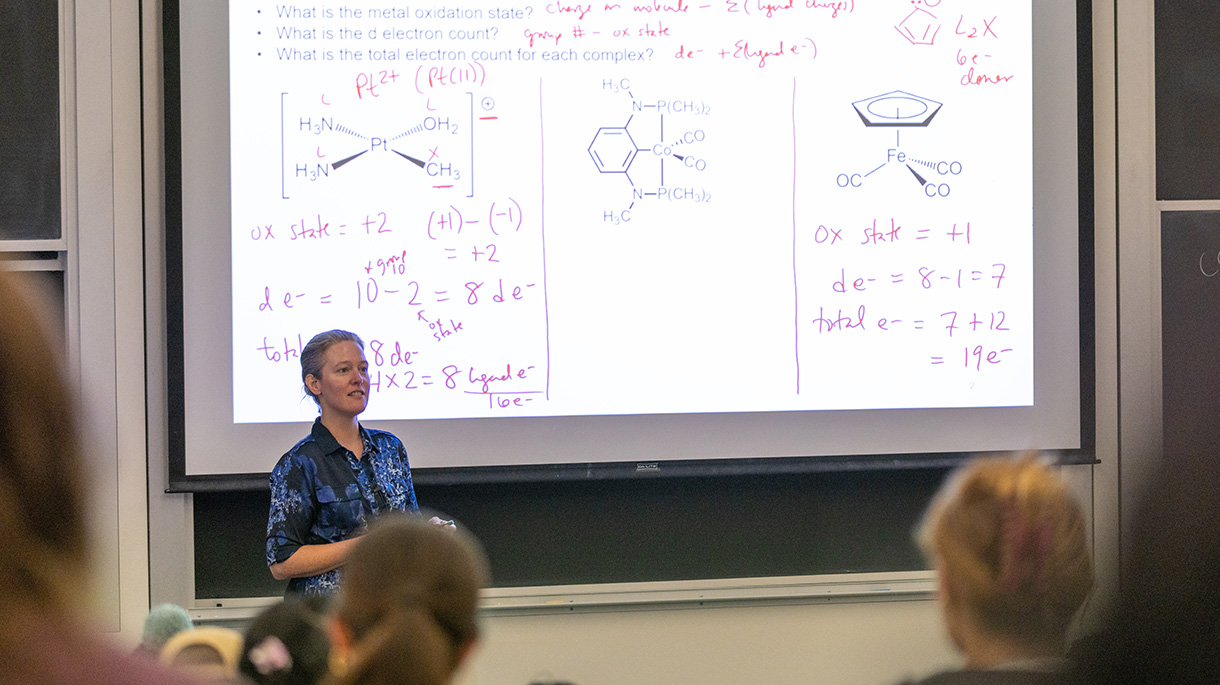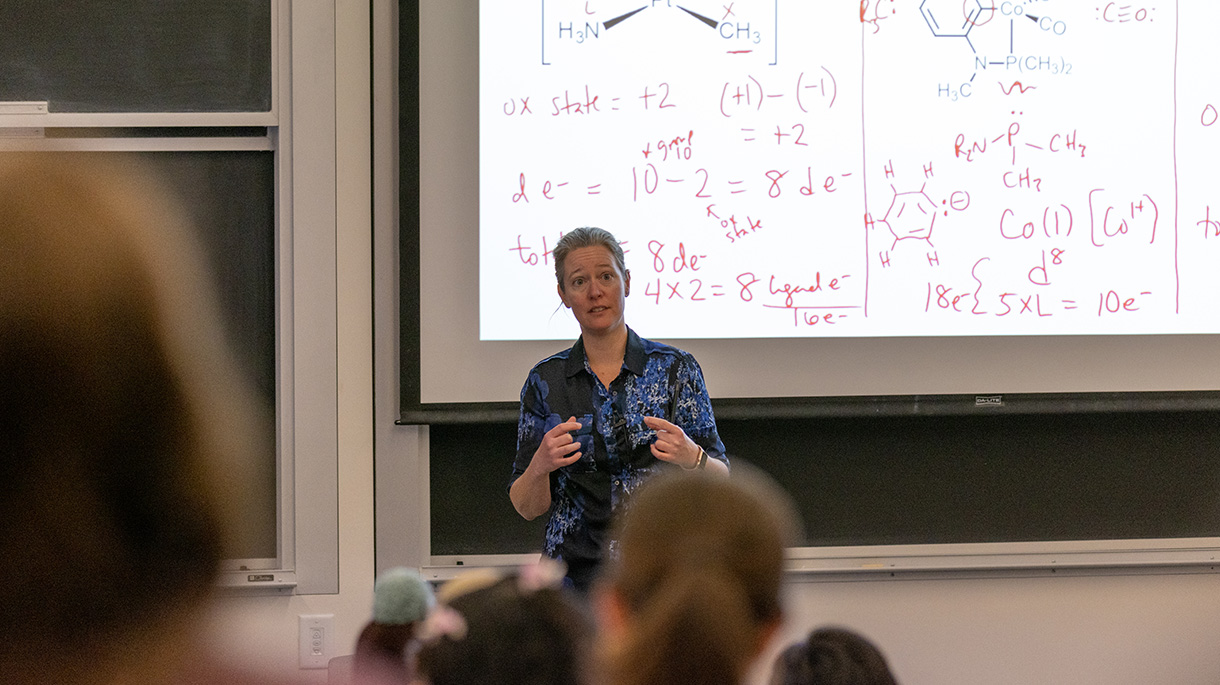In the College of Arts & Sciences, we are proud to celebrate our first-generation community through a collection of stories! We honor our students, alumni, faculty, and staff, and their many contributions to our university community and beyond.

Brandi Cossairt
Lloyd E. and Florence M. West Endowed Professor, Department of Chemistry
Tell us a little about yourself...where did you grow up and go to school? What was your route to get to college like?
I grew up in Miami, Florida. My mom was a paraprofessional (teaching assistant) in a local public elementary school. My dad was a car mechanic. My route to college was paved by opportunities I was given in my public schooling. I had great teachers and freedom-giving parents. I did a range of internship programs in high school including working at the Miami Dade Medical Examiner's Office and at the University of Miami Rosenstiel School for Marine and Atmospheric Science. I joined a research team at U Miami and that paved the way for doing some science competitions like the International Science Fair and the Siemens Westinghouse Science Talent Search, and that led me to apply to college.
How was your experience as a first-generation college student? And now as faculty, how does your first-gen experience inspire/impact your approach teaching, research, and connection to students?
I really didn't know what to expect going in and I figured I had nothing to lose by trying. In the end that was a really useful attitude because there wasn't all this pressure on me to be successful – I just got to let my own curiosity and interests shine through and lead the way. Probably the biggest struggle was financial. I had no support from my family and so I had to be proactive about applying for financial aid and fellowships and getting a part-time job. I worked as a waiter in the campus dining halls and at the campus coffee shop at night (~8 PM–2 AM).
As a faculty member, my experience as a first-gen student ensures that I know how much potential is inside every student – even those that have not yet had their opportunity to shine. It helps me talk candidly to students when I see them struggling and helps me be more empathetic and effective as a mentor. I really believe and try to instill that hard work, curiosity, and passion can lead to success in academics.

Brandi Cossairt leads a Chemistry 312 lecture in Bagley Hall.

Brandi Cossairt leads a Chemistry 312 lecture in Bagley Hall.
As a faculty member, what does it mean to you to be a part of the first-generation community?
I think it is such an important part of my identity. It really helps me to be an advocate for the "science is for everyone" mentality. It helps me remember the importance of science advocacy and science communication and of giving students opportunities in the research lab.
What brought you to the University of Washington?
I applied broadly across the United States and going into it UW was at the top of my list in terms of striking the right balance between high caliber research and exceptional public education in a beautiful setting. My husband was also a UW Chemistry undergraduate and was a great advocate for the choice.
What words of encouragement would you share with current and future first-gen students?
The ivory tower has fallen. College and advanced degree studies are for everyone. They are the best opportunity to learn and nurture your curiosity and passion for learning in a way that can have enormous impact on your life and the betterment of mankind. You are welcome here!
More Stories

A Love of Classics and Ballroom
Michael Seguin studied Classics at the UW and now owns Baltimore's Mobtown Ballroom. The two interests, he says, are more connected than they might seem.

Bringing Music to Life Through Audio Engineering
UW School of Music alum Andrea Roberts, an audio engineer, has worked with recording artists in a wide range of genres — including Beyoncé.

A Sports Obsession Inspires a Career
Thuc Nhi Nguyen got her start the UW Daily. Now she's a sports reporter for Los Angeles Times, writing about the Lakers and the Olympics.
